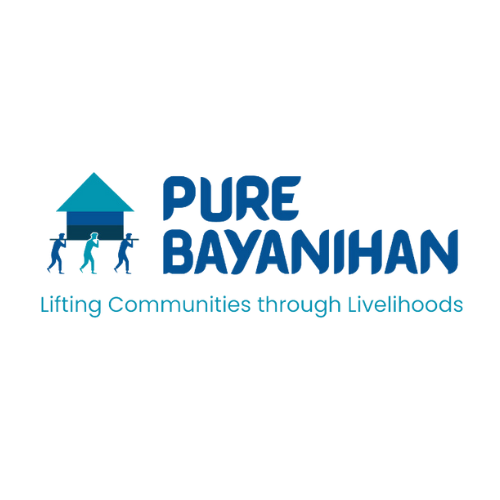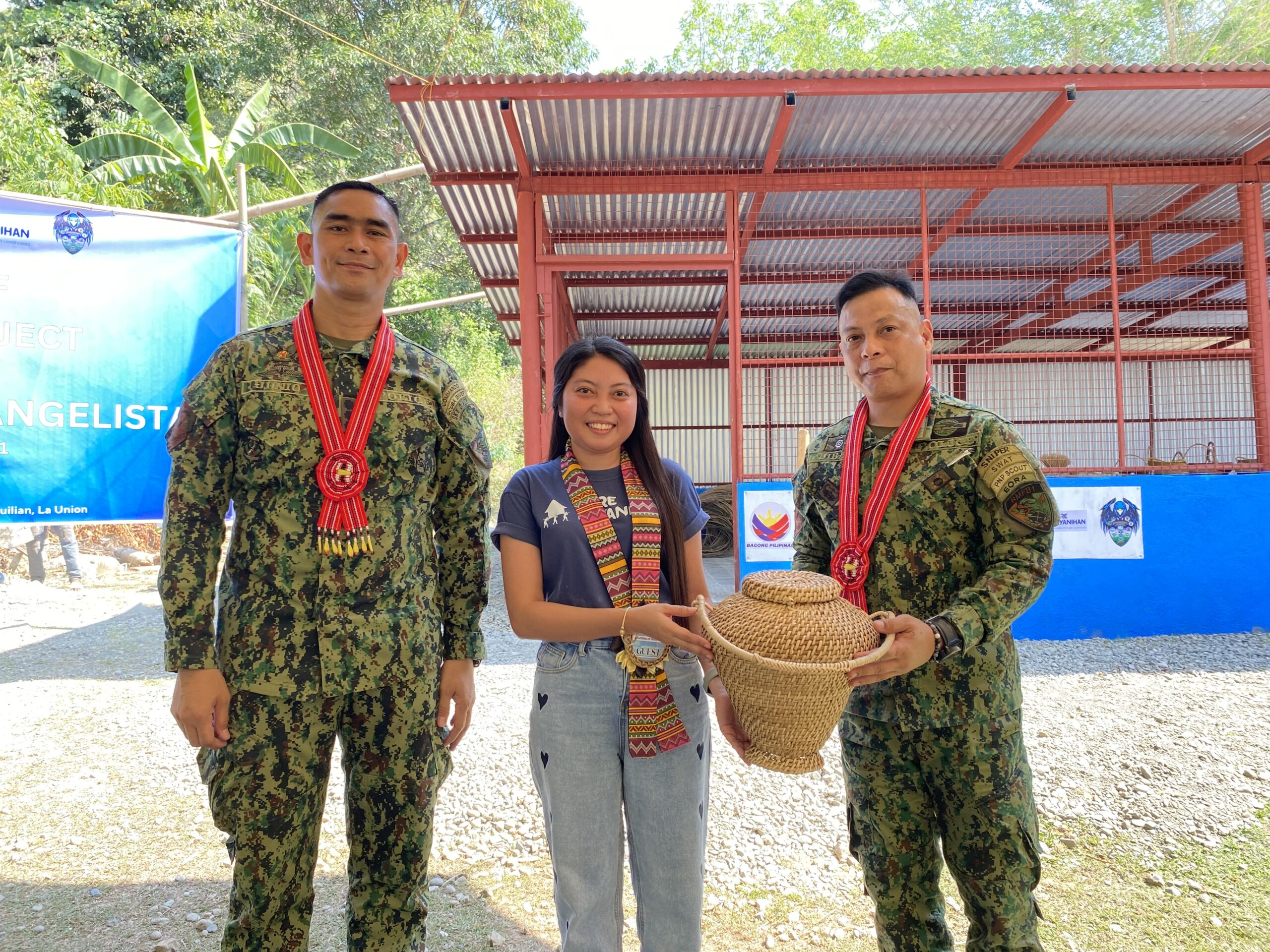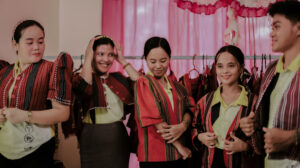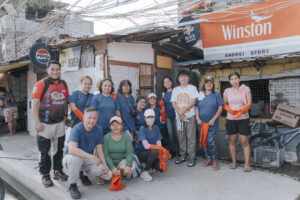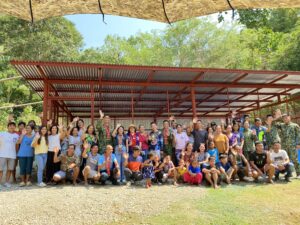When we launched the very first episode of Pure Bayanihan Conversations, we wanted to do more than just introduce our non-profit’s mission—we wanted to bring you right into the heart of our work. That’s why our inaugural guest is Jannah Endrina, our project associate and one of the pillars of Pure Bayanihan. Through her stories, we get a rare, unfiltered look at what it truly means to serve in the Philippines’ most remote communities, and how the spirit of bayanihan—communal unity—lives on in every project, every journey, and every life touched.
Meeting Jannah: The Heart Behind the Mission
Jannah has been with Pure Bayanihan for nearly three years, but her journey started even earlier as a volunteer. “Back in 2021, I was just helping distribute food packs to families who needed them most. I didn’t realize then that those simple acts of helping would become my training ground for something bigger,” she recalls. Today, she’s the bridge between our organization and the communities we serve—coordinating, planning, and personally delivering livelihood projects from start to finish.
But Jannah’s role is more than logistics. “In this kind of work, the connection with local partners and the community is everything,” she says. Each visit starts with a handshake, a conversation, and the slow building of trust that makes real change possible.
Reaching the Unreachable
If there’s one experience Jannah wishes every donor could witness, it’s the journey to a remote mountain community—a trek that’s both physically grueling and deeply humbling. “Imagine riding a habal-habal (motorcycle taxi) along a narrow mountain path, where one wrong turn means a steep drop. Then you transfer to a small boat, and after that, you walk for hours under the blazing sun, over rocky, slippery trails,” she describes. “But no matter how exhausting or difficult it gets, it’s always worth it when you see the smiles and hope on the faces of the people waiting for you”.
It’s in these moments, she says, that she truly understands the determination of the people she serves. “I realized how blessed we are to have easy access to our needs. In these communities, people have to cross rivers, climb mountains, and travel for hours just to buy basic goods. It makes the help we bring even more meaningful.”
More Than Just Projects
Awarding a project is always a celebration, but the stories behind them linger far longer than the applause. Jannah recalls a time when a community leader cried tears of joy as their project was finally awarded. “They worked so hard for it—not because it was required, but because their hearts were in it. Their passion and advocacy for their community are what make these projects succeed,” she says. One leader, Ms. Roma Madrigal, stands out for her tireless drive to uplift out-of-school youth through livelihood initiatives. “If you could only meet her, you’d feel the passion in her heart.”
Another unforgettable moment for Jannah was the awarding of the first bakery in a remote barangay. “They had been trained, they had the skills, but what they needed were the tools to start. When we finally brought the equipment, you could see the disbelief and gratitude in their eyes. For them, it was the start of a new life and new hope for their families,” she recounts.
She adds, “Sometimes, even if we know our way of helping is simple, for them it could be the beginning of a new life and new hope. That’s why their joy and gratitude at being given this opportunity is so great.”
Immersed in Culture
Jannah’s work isn’t just about delivering aid—it’s about immersing herself in the cultures she visits. She laughs as she recalls being pulled into a traditional dance during an awarding ceremony in Ilocos Sur. “I never expected to dance, but when you’re in the field, you have to be ready for anything. It’s part of their culture, and joining in is a way of showing respect,” she says.
This cultural immersion extends beyond dancing—she’s tasted local delicacies like Watwat and Tapey (rice wine) prepared by communities that take pride in sharing their traditions, despite having little material wealth. The warmth of their welcome and the generosity of their hospitality often moves her deeply. “Even though they have so little, the love and welcome they extend is so warm and generous,” she reflects.
She’s received handmade tokens as gifts from grateful communities—each one telling a story of connection that transcends the transaction of aid. One particularly meaningful lesson came during a visit to the Ayta Magbukun indigenous community in Bataan earlier this year. “Their way of life seems simple, but the depth of their culture is profound,” she explains. When a community member offered her a soft drink, she politely declined because she was feeling unwell. The response she received became a powerful lesson: “In their culture, refusing an offer is seen as disrespectful.”
“That’s when I realized we don’t just bring projects to the communities we visit—we also need to bring respect and honor their cultures,” she says. This cultural sensitivity has become fundamental to her approach, understanding that the Philippines is home to many indigenous peoples, each with their own values and traditions that must be acknowledged and respected.
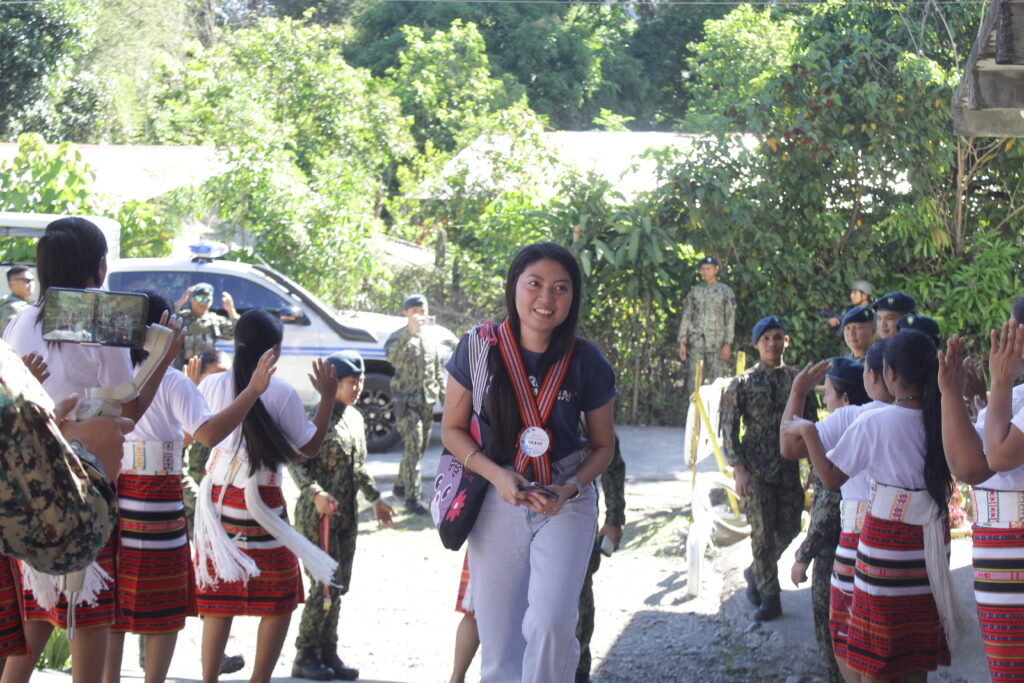
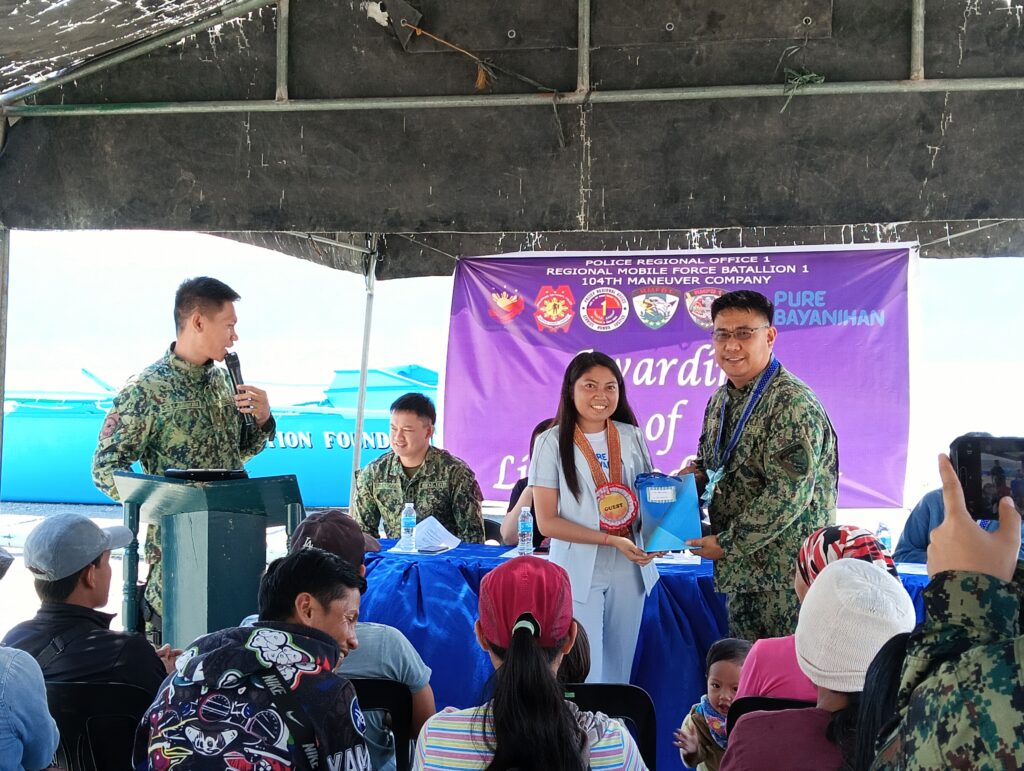
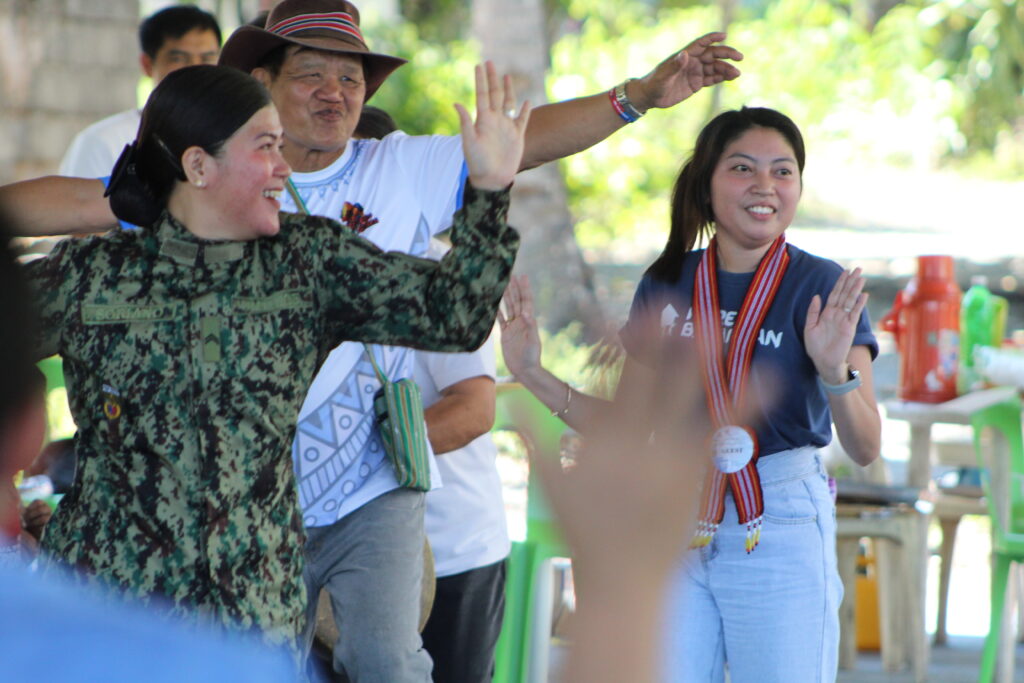
Bayanihan, Like a Scene from a Movie
Perhaps the most powerful image from Jannah’s stories is the boat project in Dasol, Pangasinan. “It wasn’t just about delivering a boat. The whole community came together—local officials, police, friends, and even ordinary residents—everyone helped lift and transport the boat. There were no orders, no expectations of reward. Everyone just moved together, laughing and sweating under the sun.”
The journey to complete this project was itself remarkable—four to five hours of travel just to reach the location, extensive paperwork for permits, coordination with multiple departments, and the physical challenge of transporting the boat. “For me, this wasn’t a simple project. We really worked hard for it together with our community leader. It required real teamwork,” she emphasizes.
The scene reminded her of a movie, except it was real—a gathering of people from all walks of life, moving in unison without being directed, simultaneously pulling the boat while sharing laughter despite the intense heat of Pangasinan’s sun. “Before, I thought bayanihan was just about helping out or community effort. But when I witnessed the exhaustion of each person who helped, who joined in that project, that’s when I saw that bayanihan is also about heart,” she reflects.
“They weren’t asking for anything in return. All they had was compassion and the desire to help those being helped. Perhaps that’s the innate feeling of us Filipinos—when something needs to be lifted, literally or figuratively, one person isn’t enough. It needs to be together, with unity and cooperation.”
She treasures a rattan basket given to her by one community, seeing it as a symbol of bayanihan. “Each strand is carefully woven with patience, and together they make something strong and beautiful. That’s what bayanihan is—everyone’s contribution, big or small, makes the whole stronger. It’s like our projects—they’re not just products, funds, or plans, but the heart of each person joining in our mission at Pure Bayanihan.”
Friendships Beyond Projects
For Jannah, the relationships built in the field are just as important as the projects themselves. “At first, it’s all work. But over time, you become friends with the community leaders, the volunteers, even the police who help with coordination,” she says. What begins as professional relationships gradually transforms as they share experiences—inside jokes emerge, gifts are exchanged, and genuine connections form that outlast the project timeline.
“There are many community leaders and police officers who continue to check in on me even after the projects are done. This proves it’s not just about transactions—we can build lasting friendships beyond the projects we discuss,” she explains with warmth. Each place she visits leaves her with new friends, making the work continually rewarding in ways that can’t be captured in formal reports.
The entire ecosystem of Pure Bayanihan is built on these relationships—beginning with a small network of trusted connections that has gradually expanded through genuine personal bonds. “Every place I visit, I leave with a new friend. That’s something you can’t put in a report, but it’s what makes this work so rewarding,” she shares.
What Our Readers Can Take Away
Jannah’s stories remind us that change happens not just through funding or planning, but through genuine connection, humility, and the willingness to walk alongside others—literally and figuratively. The spirit of bayanihan is universal: when people come together, driven by compassion and a shared goal, they can overcome even the steepest mountains.
As Jannah puts it, “Sometimes, what seems like a small act of help can be the start of a new life and new hope for someone else. That’s why I keep going back to the field—every community, every person, every story is different, and each one teaches me something new.”
Hearing Jannah speak about these experiences brings them to life in a way that photos and formal reports never could. Her stories offer a window into both the challenges and the profound rewards of grassroots development work—where true change is measured not just in livelihood projects delivered, but in relationships built, cultures respected, and hope restored.
If these stories moved you, imagine what’s possible when we all come together. The journey isn’t easy, but it’s always worth it.
“Bayanihan is not just about helping. It’s about putting your heart into it, giving without expecting anything in return, and respecting the people you serve. That’s what makes real change possible.” — Jannah Endrina
Be Part of Stories Like This
Your support doesn’t just fund projects—it helps write new stories of hope, resilience, and community. When you give to Pure Bayanihan, you become part of every journey, every celebration, and every life changed. Help us reach more remote communities and empower more Filipino families to move mountains, together.
Watch the videos and give today at PureBayanihan.org. Be part of the next story of bayanihan.
